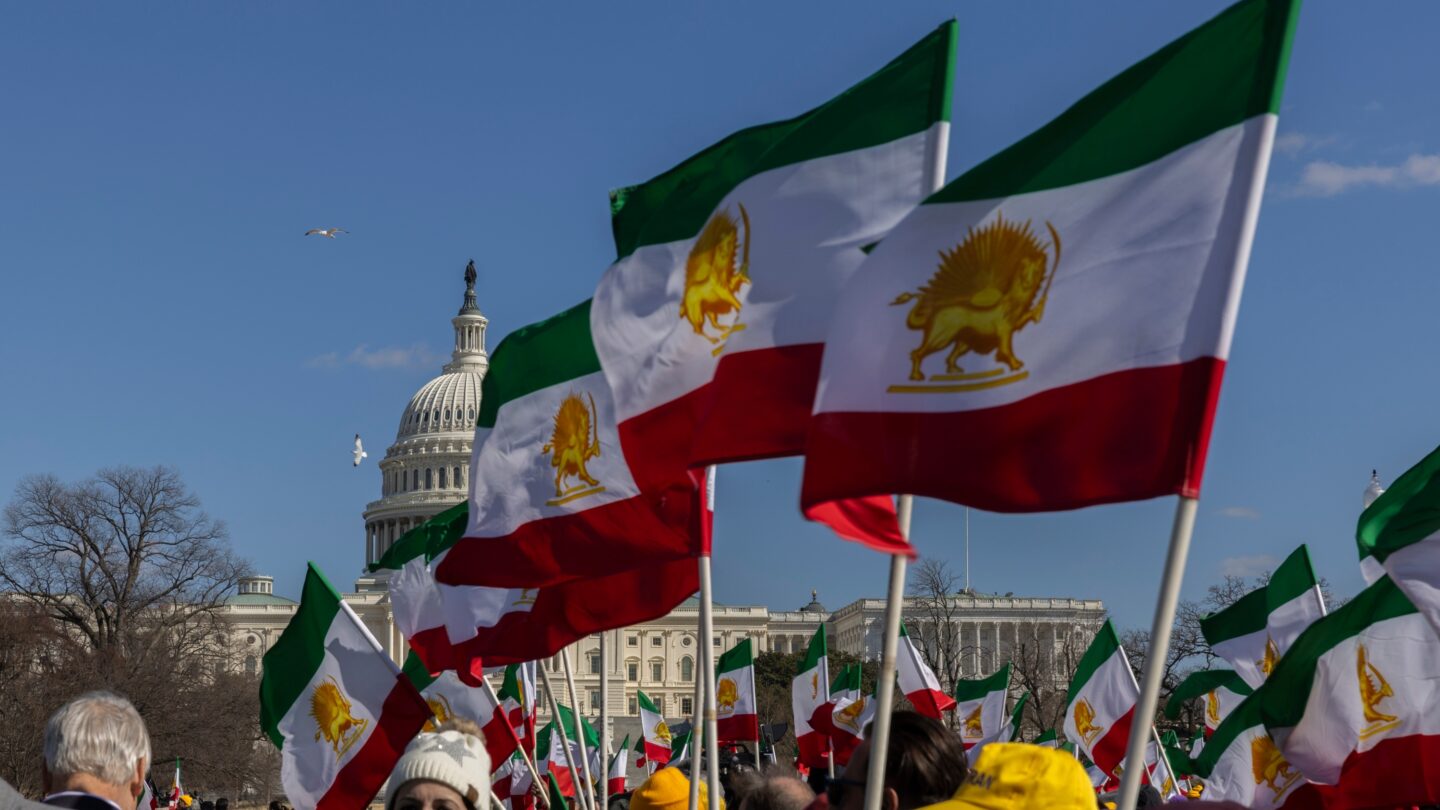Donald Trump is the most anti-immigrant president-elect in modern history. His immigration proposals, if enacted, will have a devastating impact on American society and our economy. Trump has surrounded himself with radical, anti-immigrant advisers who support mass deportation, the curtailment of immigrant rights, and severe restrictions on future immigration flows. Until recently, these voices were relegated to the fringe-right, and their proposals have alienated voters, been struck down by courts, and rejected by economists.
There are three main reasons to decry Trump’s immigration perspective. First, his proposed policies will cause tremendous human suffering here and abroad. Second, they will have disastrous effects on the American economy. Third, the passage of Trump’s immigration agenda will erode America’s most fundamental values.
#1: Trump’s immigration plans will have a catastrophic impact on human life both here and abroad.
Trump says that he wants to deport 2-3 million undocumented “criminal” immigrants (despite the fact that there actually aren’t 2-3 million undocumented criminal immigrants in the U.S.). Trump has insinuated that the term “criminal” extends to undocumented immigrants arrested for a crime, but without a conviction. This is troubling, since of course arrests don’t equal convictions.
The proposed deportation tactics would rely on a deportation force that violates the rights of both undocumented individuals and citizens alike. Such a policy—aside from being a surefire way to implant an overarching sense of fear in immigrant communities— fails to take into account practical concerns, including the huge backlogs in U.S. immigration courts and the logistical complications for countries who refuse to take their citizens back.
Perhaps the most troubling course of action Trump is considering is repealing Deferred Action for Childhood Arrivals (DACA), or letting it expire. DACA offers undocumented immigrants deportation relief and work authorization if they are brought to the United States as children. There are more than 700,000 DACA recipients, and the overwhelming majority of beneficiaries are in school or working. The program has been largely successful in bringing undocumented youth out of the shadows and empowering them to study or work, all while paying taxes.
If Trump does away with DACA (a program that, in principle, has bipartisan support) it would reverse years of progress in protecting those most deserving of deportation relief. It would result in students having to drop out of school, and companies being forced to fire employees. It would effectively break the promises that the federal government made to “Dreamers,” signaling a withdrawal of support and acceptance.
Trump also poses a grave threat to humanitarian immigration flows. Given his past rhetoric, it isn’t a stretch to predict that he will try to reduce overall refugee resettlement goals drastically—maybe even blocking refugees from countries like Syria or Iraq from entering the United States. He can implement burdensome screening requirements to extend refugee processing times, prioritize resettling Christians over Muslims regardless of vulnerability, deport refugees and asylees with minor offenses, and empower more states to withdraw from the refugee program.
The long-term repercussions to the U.S. refugee program would be devastating. Intelligence agencies have tightened refugee screening and security procedures continually in the last decade. A pause, either fully or for some nations like Syria, will dismantle the infrastructure needed to identify, screen, and resettle refugees both here and overseas.
With his newfound power, Donald Trump is in a position to implement mass deportation, crush the futures of refugees and asylees fleeing persecution, and pull the rug out from underneath “Dreamers” who want to study and work here in America. The urgency of this threat cannot be understated.
#2: Trump’s immigration plans will have a disastrous impact on the American economy.
Restrictive policy priorities and vitriolic rhetoric are a dangerous mix in the global competition for talent. Since Trump’s election, an troubling trend has emerged: foreign students, entrepreneurs, and workers are re-thinking plans to participate in the American economy. Numerous media outlets are reporting that not only are immigrants questioning whether they want to come to the U.S. under a Trump presidency, but countries like China, Canada, and Germany are aggressively recruiting high-skilled immigrants that are forgoing America’s visa programs.
Also threatening to put a massive dent on our economy is Trump’s proposed deportation force and border wall. The wall will be massively expensive to build and maintain. His deportation plans would remove two to three million consumers and producers from the American economy, and his DACA repeal would cost the U.S. economy billions of dollars over the next decade.
The prospect of further militarization of the border may whip Trump’s supporters into frenzy at rallies, but from a policy and budgeting perspective, it is enormously costly without much benefit. Congress would have to appropriate money to fund a huge increase in border agents and massive investments in new technology— in addition to the gargantuan physical infrastructure of a 2,000 mile wall. Those are just the initial costs, without taking into account the annual maintenance costs for what would be one of this country’s largest infrastructure projects ever.
Those costs would be in addition to the hit the economy would take from losing millions of workers, producers, and consumers through deportation—especially in industries that rely on undocumented labor like agriculture, food service, and construction.
Furthermore, legal immigration is at risk. There could be restrictions placed on America’s high-skilled visa program, the H-1B, or guest worker programs for agriculture and non-agricultural jobs that Americans opt against. Trump has threatened to place the J-visa on the chopping block, along with the Optional Practical Training program, which allows foreign students to stay in the United States as they search for jobs after graduation.
Trump’s immigration ideas, if put into action, will severely undercut the power of the American economy. Having a reliable immigrant work force keeps American firms operating, growing, and creating new jobs.
#3: Trump’s immigration plans will betray American values
The immigrant story is inherently the American story: brave individuals from around the world leaving their homes in search of freedom and opportunity. Donald Trump threatens these fundamental American values. He represents an unabashed moral and constitutional crisis for America.
Immigration is tantamount to the American identity. It represents the freedom to build a new life, the opportunity to escape suffering and oppression, the ability to engage in enterprise and entrepreneurship, to pursue education, and to become part of a society that prioritizes openness and respect. If we value what has made America what it is today, we must continue to champion immigrants and refugees under a Trump presidency.
The Trump presidency will try to dilute America’s immigration ethos, and threaten to redefine what it is to be an American. This is unacceptable. The millions of American citizens who trace their lineage to immigrant ancestors should openly reject his plans. The organizations and businesses nationwide that were spearheaded by and/or employ immigrants and have immigrant consumers should resist such hostile rhetoric. Not doing so would only lend credence to Trump’s caustic words and dangerous ideas.
Conclusion
We are living in an exceptionally troubling time, as the values, norms, and institutions that we sometimes take for granted are being threatened by nationalists and authoritarians—from the U.S. to the United Kingdom, and beyond. Our liberal traditions, from open immigration to the rule of law, are proving to be exceedingly fragile.
This is why it is so important that those that are repelled by the rhetoric that has fueled Trump’s victory band together, to form a very different kind of wall: one that will block hatred and intolerance from seeping in from Breitbart and its ilk into our everyday experiences and our immigration laws.
Supporting open immigration is about recognizing that free movement can transform the lives of the poor all around the world by substantially increasing wages. Open immigration can serve our national security interests, provide labor to rural areas, reunite families that have been separated, and a provide a safe haven to displaced people. Immigration revitalizes and reinvigorates our nation. This country is defined not but its citizens’ ethnic background, but by our shared American dream of working towards a better future. We must powerfully repudiate Mr. Trump’s efforts to upend America’s immigration spirit.
At the Niskanen Center, we look forward to working with Republicans who know that Trump represents a dire moment in America’s vibrant immigration traditions. As such, we will work tirelessly to assist them in reclaiming policies that enrich the lives of Americans, propel our economy forward, and help those around the world in search of opportunity. The center-right should not give in to Donald Trump’s restrictionist aims. We can’t sanitize the implications of his immigration policy, and Republicans need to resist the pressure to blindly rally behind their party’s leader when the consequences of his policy goals leaves us poorer—economically, culturally, and ethically.
The threat that Trump poses transcends partisanship. As such, we also look forward to working with everyone on Capitol Hill—whether they are Republicans, Democrats, or Independents— and any organization across the spectrum of political affiliations, who will challenge restrictionist immigration policies that will wreak havoc on our economy and society. We’re ready to roll up our sleeves and get to work fighting for what makes America truly great: freedom, opportunity, diversity, and compassion.





